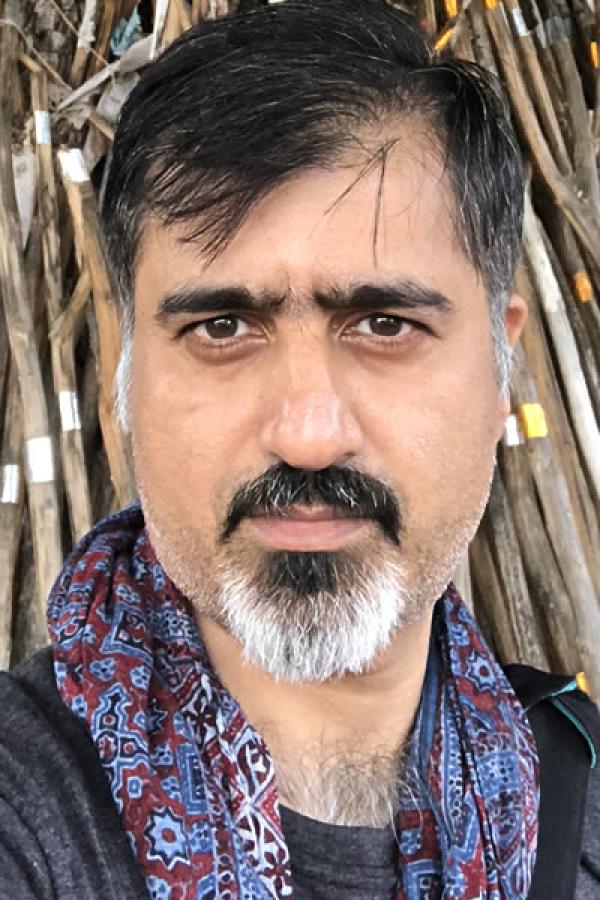Naveed Alam

Photo courtesy of Naveed Alam
Bio
Naveed Alam’s first collection of poems, A Queen of No Ordinary Realms, won the Spokane Poetry Prize. His work has appeared in numerous literary journals, including International Poetry Review, American Poetry Journal, Prairie Schooner, the Seattle Review, 91st Meridian, and the Adirondack Review. He has translated Madho Lal Hussein, the 16th-century Punjabi poet, into English (Verses of a Lowly Fakir). His most recent work is a bilingual collection of Punjabi and English poems, The Others. Currently he lives and teaches in Lahore, Pakistan.
Project Description
To support the translation from the Punjabi of a collection of poetry by Nasreen Anjum Bhatti and Sara Shagufta. This project will bring into English the works of two contemporary women Punjabi poets who struggled to create space for the marginalized female voice in Pakistan's literary landscape and whose works explore themes of gender and sexuality. Bhatti (1948-2016) was a major literary figure, feminist, activist, and radio broadcaster who achieved relative success during her lifetime. The life of Shagufta (1954-84), in contrast, was marked by domestic abuse and financial hardship, and her work was banned during the dictatorship of General Zia-ul-Haq. She was sent to a mental asylum where she received shock therapy and eventually died by suicide at the age of 29. While both poets wrote in Punjabi and Urdu, this collection will focus exclusively on their Punjabi poetry.
To translate a poem is to attempt an alternative possibility of a poetic universe, to extend a poem’s reach, to hurl it towards the farther suns and moons. I was born in Pakistan where Punjabi was the private language of familial intimacy, Urdu the public language of social relationships, and English the lingua franca of academic discourse. Of course, things weren’t all fair and equal, some languages got privileged over the others, especially when I moved to the U.S. as a teenager and embraced English as the language of literary expression. Translation has allowed me to freely traverse the literary borders, explore the hitherto unchartered territories of my multilingual universe, appreciate the interplay of imaginations associated with different languages, and most importantly suture the various halves of my self ruptured by a post-colonial reality. This year I published my first bilingual collection of poems in Punjabi and English, The Others. I’m learning to look at English through Punjabi, Punjabi through English, and I guess it’s been like calling a lover by different names and relishing the echoes. Even this statement is most likely to be translated and re-translated (perhaps transcreated?) for better self-cognition. Needless to say, this award will go a long way to sustain my apprenticeship with poetry as a fuller being.

